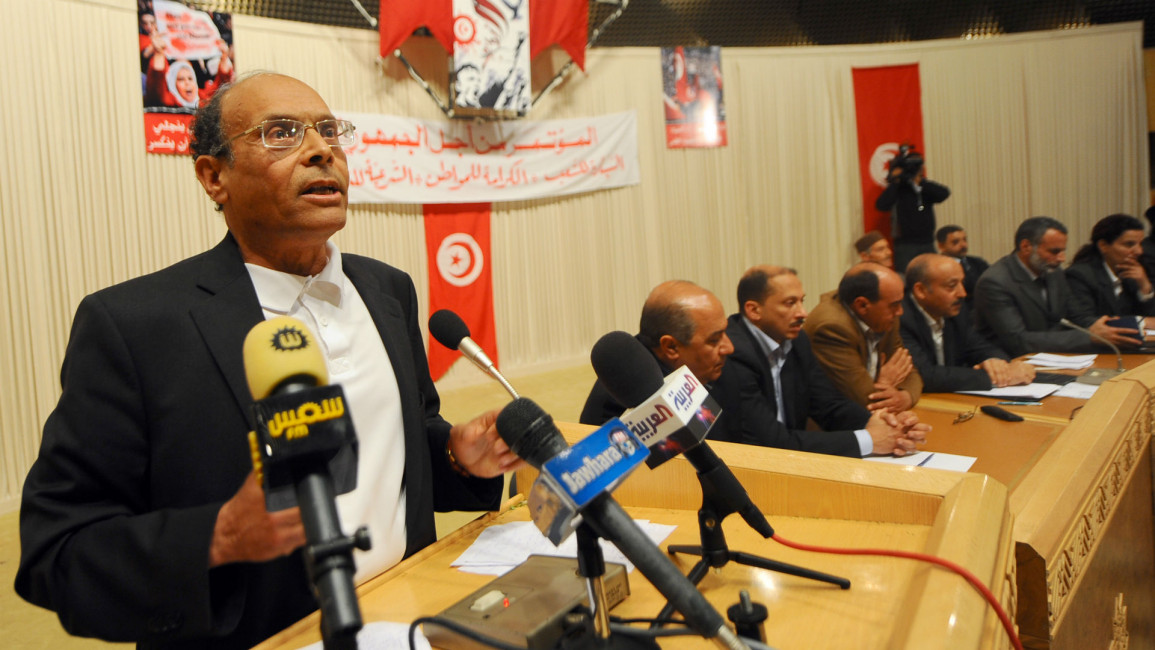
Marzouki: From Tunisia's presidency to Israeli detention cell
Moncef Marzouki, the former president of Tunisia, has found himself in Israeli detention, after being pulled off the Marianne, part of a flotilla that was attempting to break Israel's siege of the Palestinian Gaza Strip.
Israeli naval forces boarded the vessel while it was in international waters, and have forced it to set sail for the Israeli port of Ashdod, where it is expected to arrive within the next day or so.
Marzouki is but one of a number of European and Arab politicians and journalists on the flotilla, but his status as the first post-revolution president of Tunisia - the first post-Arab Spring president - means that the spotlight will shine on him most brightly.
A symbol of democratic change in the Arab world, at a time when the region is in a state of turmoil and deadly terrorist attacks are on the rise, still did not meet the criteria of acceptable protest set by Israel, often referred to by its supporters as the region's "only democracy".
Marzouki's very participation in the flotilla sets him apart from other Arab leaders, including those who have peace deals with Israel and those officially still enemies, in that he is a leading Arab politician who put himself in the firing line and put himself at risk, knowing that a previous attempt to break the blockade led to the deaths of ten activists at the hands of Israeli forces in 2010.
The rise of this kind of populist Arab politician, in the knowledge that Palestine is probably the most populist of all Arab causes, could potentially be damaging for Israel.
Yet, in light of the powerful counter-revolutionary forces in the Arab world, the ongoing and ever-expanding wars in the region, and continued repression of citizenry, Israel may not have to worry for the foreseeable future.




